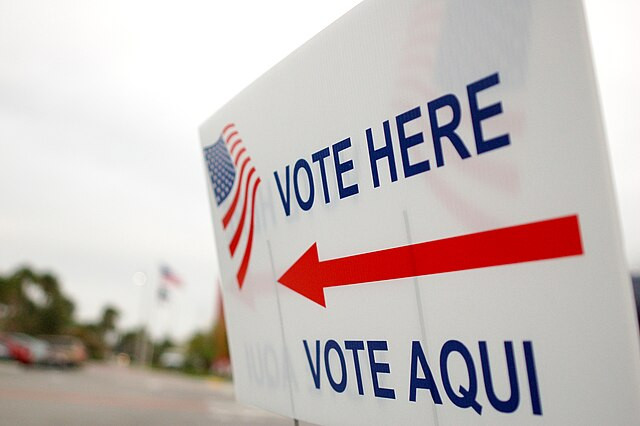In a significant legal decision ahead of the upcoming presidential election, a federal judge ordered Virginia on Friday to restore more than 1,600 voter registrations that had been purged in recent months. U.S. District Judge Patricia Giles ruled that the state's efforts to remove these registrations, under the guise of identifying noncitizens, violated federal law.
Judge Giles' decision came after a lawsuit brought by the U.S. Department of Justice, which argued that Virginia had conducted a systematic purge of voter rolls during the 90-day "quiet period" leading up to the election, a violation of the National Voter Registration Act. This law restricts states from making large-scale changes to voter rolls shortly before a federal election to prevent eligible voters from being wrongly disenfranchised.
"The state lacked proof that the purged voters were noncitizens but went ahead and canceled their registrations anyway in violation of federal law," Judge Giles said. The ruling was a clear rebuke to Virginia's election officials, who had argued that the purge was targeted at noncitizens identified through Department of Motor Vehicles (DMV) data. Giles added, "I'm not dealing with beliefs; I'm dealing with evidence," in response to the state's insistence that those removed were ineligible to vote.
The purge, ordered by Virginia's Republican Governor Glenn Youngkin through an executive order issued in August, had sparked significant controversy. The order mandated daily checks of DMV data against voter rolls to identify noncitizens and remove them from the rolls if they failed to respond to notifications. State officials defended the action, saying it was a necessary measure to prevent illegal voting.
Youngkin's executive order was implemented at the very start of the federal quiet period, prompting critics to question the timing. "It's not happenstance that this was announced exactly on the 90th day," Giles remarked from the bench during Friday's hearing.
The 1,600 voters affected by the purge included individuals who had checked the wrong box on DMV forms or were wrongly flagged as noncitizens due to outdated information. The plaintiffs, represented by the Justice Department and advocacy groups like the League of Women Voters, argued that many of those removed were, in fact, U.S. citizens. Evidence presented during the hearing highlighted several cases where eligible voters had their registrations erroneously canceled.
Governor Youngkin responded to the ruling with a sharp statement, accusing the Justice Department of undermining efforts to maintain the integrity of Virginia's elections. "Let's be clear about what just happened: only eleven days before a Presidential election, a federal judge ordered Virginia to reinstate over 1,500 individuals - who self-identified as noncitizens - back onto the voter rolls," Youngkin said. He pledged to appeal the decision, calling it a "travesty" and suggesting that it would lead to noncitizens illegally casting votes.
However, Judge Giles made it clear that her ruling did not give noncitizens the right to vote. Her injunction specifically requires Virginia to restore the registrations of all 1,600 voters whose names were removed under the governor's executive order. Furthermore, these individuals will receive letters notifying them of their reinstated voter status and reminding them that if they are noncitizens, they are still barred from voting under federal law.
Virginia's Republican Attorney General, Jason Miyares, also condemned the ruling. "It should never be illegal to remove an illegal voter," he said, doubling down on the argument that the purge was a necessary step to prevent voter fraud.
Conversely, voting rights advocates hailed the decision as a victory for democracy. U.S. Representative Gerry Connolly, D-Va., who had alerted the Justice Department to the purges, praised the ruling, stating, "Governor Youngkin's purges have served only one purpose - to disenfranchise thousands of lawfully voting citizens of the Commonwealth. That stops today."
The case in Virginia mirrors a similar situation in Alabama, where a federal judge recently ordered the restoration of voting eligibility for over 3,200 voters who had been removed from the rolls under a similar noncitizen identification program. In Alabama, testimony from state officials revealed that a significant number of those purged were, in fact, U.S. citizens.
As Virginia's state officials prepare to appeal the ruling to the 4th U.S. Circuit Court of Appeals, concerns over voter suppression and election integrity continue to simmer. With the 2024 election just days away, the decision underscores the high stakes involved in the balance between securing voter rolls and ensuring that eligible citizens are not wrongfully disenfranchised.






